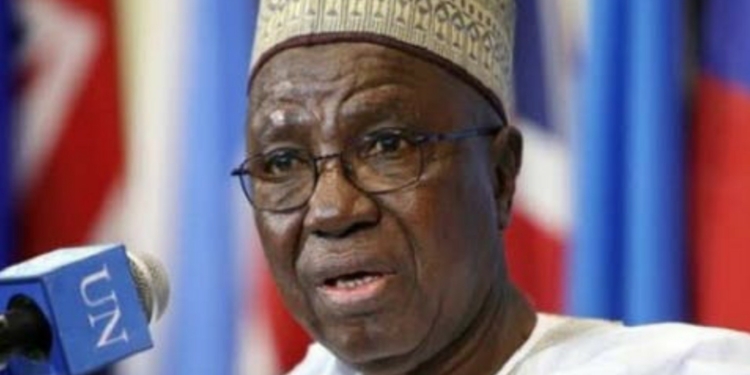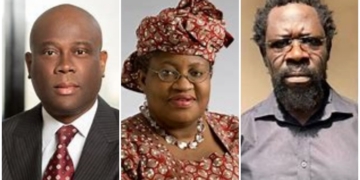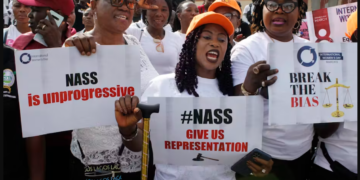Federal high court sitting in Kano on Friday discharged and acquitted a former minister of foreign affairs, Aminu Wali and a Goodluck Jonathan Campaign Coordinator, Mansur Ahmad of money laundering charges.
The duo were arraigned by the Economic and Financial Crimes Commission (EFCC), alongside a former Kano state Governor, Ibrahim Shekarau in May 2018, for allegedly collected the sum of N950 million from Nenadi Usman, director, Peoples Democratic Party (PDP), Presidential Campaign, in March 2015 for then president Goodluck Jonathan re-election.
The EFCC alleged that the monies distributed by the PDP under Jonathan’s administration were proceeds of stolen funds looted from public treasury.
The anti-graft agency also alleged that the transaction of the money did not followed standard banking rules -thereby committing offences under section 1(a) of Money Laundering Act 2011, punishable under section 16 (2b) of same act.
Delivery Judgment on the criminal case, Justice Lewis Allagoa submitted that prosecution counsel had failed to prove beyond reasonable doubt that the transaction did not follow standard rules of financial institution.
Justice Allagoa contended that evidence before the court clearly indicated the affirmation of the defendants to receiving the large some of amount through a financial institution.
Contrary to the submission of the EFCC, the court declared that the money laundering act phrase “through financial institution” has not categorically specified any process or instrument that should be presented before transaction take place.
The court of Appeal had cleared former Governor and Senator, Ibrahim Shekarau of all the charges after filed a no case submission before the lower court.
Reacting to the judgment, the prosecution counsel, Cosmus Ugu, said the position of the court is well considered but argued that EFCC has not failed in it charges on money laundering act.
“I do not think the EFCC has gotten it wrongly because we charge base on the provision of the law. It doesn’t necessarily means that party was malicious in it prosecution, it only means that the element of the offense that ought to have been proved were not proved,” Ugu said.
“The central issue was that whether there was transaction through a financial institution or not. Our argument was that it was not because you cannot go to Fidelity Bank and say give me the account from which this money was paid and you will get it.
“But, it a new area of law so we would continue to work towards developing it so that subsequently when this kind of matter comes up we would have authority, we would have authorities to quickly bring to the aide of the court to say this is what the supreme has said.
“I am sure if the appeal court or supreme Court had interpreted the phrase ‘through a financial institution’ we wouldn’t have had the difficulties we had in trying to prove that it was not through a financial institution.”
Speaking with Journalists after the Judgment, Wali said the court verdict has vindicated him of allegation of committing money laundering. While appreciating the support of his followers, he claimed that his prosecution was political motivated.






Discussion about this post